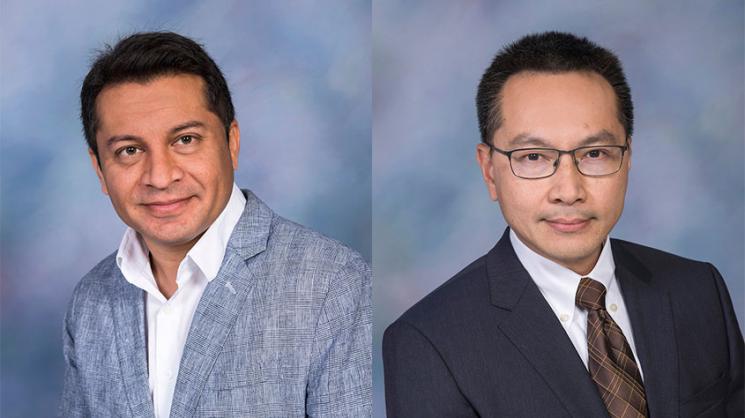Two researchers from the Department of Chemical and Biomolecular Engineering (CHBE) at Rice University have been awarded an $800,000 grant by the U.S. Department of Energy (DOE) to study a novel method for splitting water into its constituent parts, hydrogen and oxygen.
The grant represents Rice’s share of DOE’s $40 million awarded to 29 projects to advance the H2@Scale concept. The program seeks a way to create affordable, reliable large-scale hydrogen generation and storage in the US. Funded through DOE’s Office of Energy Efficiency and Renewable Energy, with contribution from DOE’s Office of Nuclear Energy.
The project’s principal investigator is Aditya D. Mohite, associate professor of CHBE and of materials science and nanoengineering. His co-PI is Michael S. Wong, chair and professor of CHBE, of chemistry, materials science and nanoengineering, and civil and environmental engineering.
“We are interested in photocatalytic water splitting because it produce hydrogen, a clean-burning fuel. Water splitting uses water, an inexpensive renewable resource. We want to use a catalyst and sunlight to produce hydrogen,” said Mohite, whose proposal is titled “Highly Efficient Solar Water Splitting Using 3D/2D Hydrophobic Perovskites with Corrosion Resistant Barriers.”
The goal of photoelectrochemical water splitting is the large-scale production of energy with low or no greenhouse gas emissions. Up to this time, the method has had limited success because of the high cost of fabrication and because materials in aqueous environments tend to undergo photo-corrosion. The Rice team will be developing barrier materials to address these issues and catalytic materials that are efficient and compatible with solar-cell structure.

